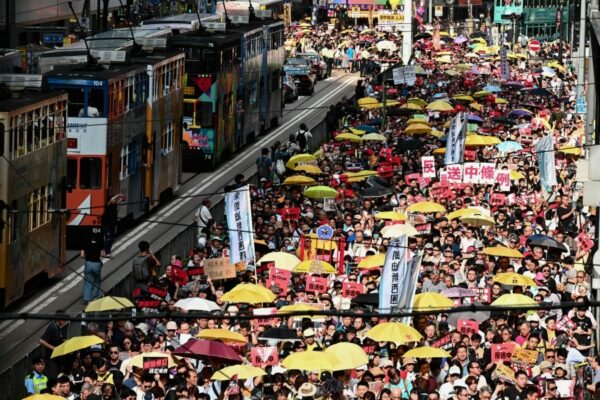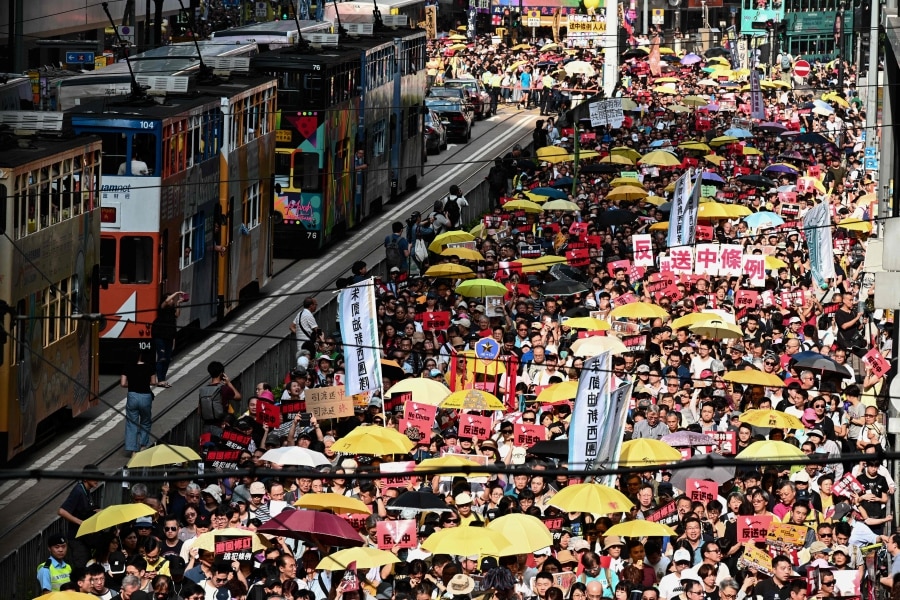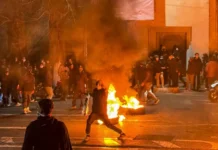130,000 march on April 28 – now we need a one-day political strike!
Dikang, Socialist Action (CWI in Hong Kong)
The mass turnout of 130,000 people on Sunday April 28 against the government’s repressive agenda has turned Hong Kong’s political situation around. This was the biggest demonstration since the 2014 Umbrella Revolution, the longest ever occupation of a major city, lasting 79 days.
The protest against government amendments to Hong Kong’s extradition law, but morphing into an all-encompassing mass “hate session” against Carrie Lam’s unelected administration, was called at just eleven days’ notice. The new laws will allow Hong Kong residents and even foreigners transiting through the airport to be extradited to China where 99 percent of court convictions are based on “confessions”, torture and coercion is rife, and basic legal rights – such as choosing your own lawyer – don’t exist. This would effectively legalise the Chinese state’s kidnapping of political dissidents in Hong Kong.
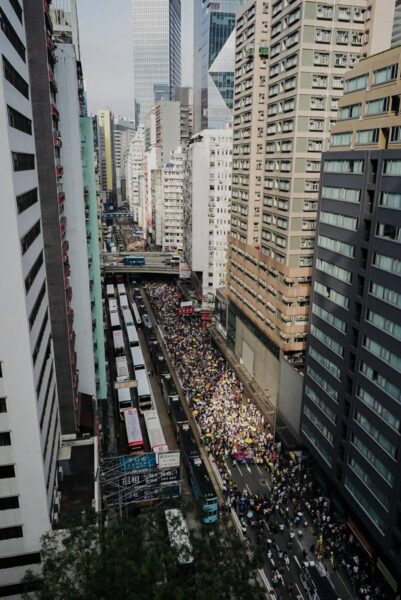
Article 23
The Civic Rights Front, a coalition of pro-democracy groups which successfully called the march, showed how mass pressure has built up on the various pan-democratic parties and groups to “do something”. A previous protest on March 31 attracted around 12,000 people. Notably, the more moderate i.e. right-wing pan-democratic groups (who have been largely “absent-without-leave” during the past three years of escalating state repression) were skeptical to the idea of a new demonstration, expressing fears it would be “small” and reveal “weakness”.
These so-called leaders have never once during Hong Kong’s three-decade-long democracy struggle been the initiators of mass movements for democratic rights, but rather are forced to run to catch up when they fear events will push them aside. This was one such moment.
Establishment stalwart Regina Ip compared this huge demo with the historic 500,000-strong July 1 (‘71’) demonstration of 2003. She was forced out as security minister by that movement, her Article 23 national security legislation abandoned. Carrie Lam’s government is under increasing pressure from the Chinese dictatorship to pick up the dropped baton and introduce Article 23 in the next period, something Lam and Co. have hesitated to do precisely because this can revive the mass democracy struggle. The day after the April 28 protest, Ip said the government cannot afford to back down this time, warning this would “affect governance”.
Ip’s comments, echoed by government ministers and Chief Executive Carrie Lam herself, show the ruling class realises – and fears – that the current struggle has a similar potential. 2003, was a historic defeat for the city’s pro-China capitalist establishment and a setback for the Chinese dictatorship, which was forced to tread carefully in its management of Hong Kong in the years immediately afterwards. But today’s battle has a different background, after three years of unprecedented political repression, disqualifications, show trials and bans on political parties. The stakes are higher.
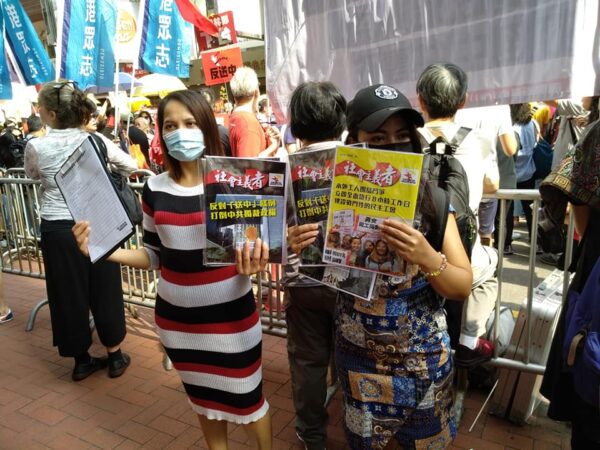
Siege of Legco
As countless protesters told us, especially the young who were out in force on the demonstration, “just demonstrating is not enough”. Socialist Action’s speakers drew applause again and again when we called for escalating the struggle, and pointed out that the government is so far not planning to retreat, even with 130,000 on the streets. As we said, the movement must answer with similar resolve: we will not retreat! But what then is needed to take the struggle forward?
We say yes to a ‘siege’ – an occupation – outside the Legco, as raised by protest leaders (reflecting the huge pressure from the marchers) to start as soon as possible. But even this is not enough. To defeat the extradition law, win the release of political prisoners, bring down Lam’s authoritarian regime and win genuine and full democratic rights, the Hong Kong struggle needs to upgrade to strike action.
If 1,000 school students could do this on 15 March, as part of the global climate strike, imagine the response if the demonstration’s leaders called – imminently, so the momentum is not squandered – for an initial one-day political strike of all workers and students in the territory. This is a step the 2014 Umbrella Revolution unfortunately never aspired to take and a major reason that movement ended in frustration without a single concession.
This would be taking a leaf from the book of the revolutions today in Algeria and Sudan – where the masses have driven dictators from power. Workers’ strikes represent something entirely different to the street protests of the past, important as they have been, because they hit the profits of the billionaire corporations directly and challenge the capitalists’ control over the economy.
The government is doubling down after the giant 28 April protest. “We will not retreat,” says Carrie Lam. The same answer, backed by real organisation, must be given by the democracy movement – we are not backing down, we are escalating until Lam’s authoritarian policies and their authors are completely defeated!
